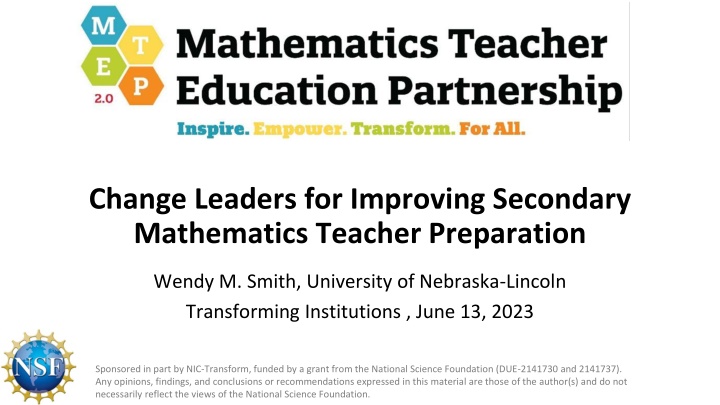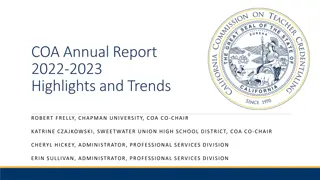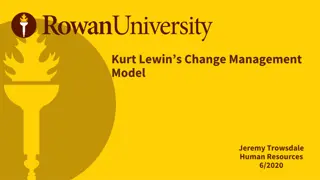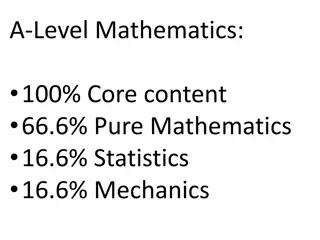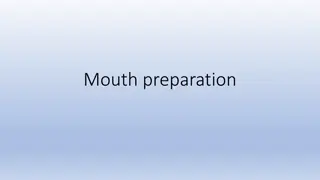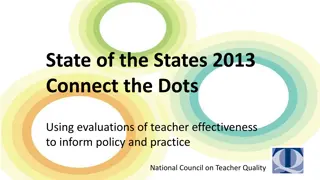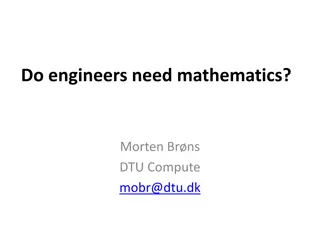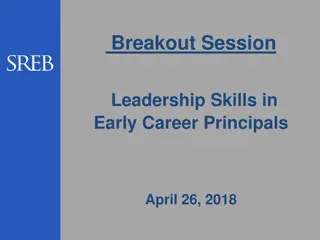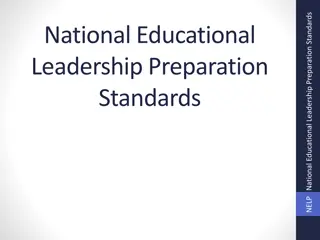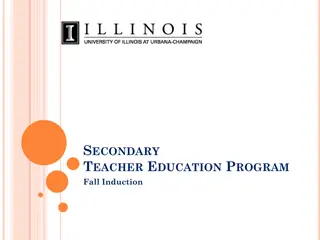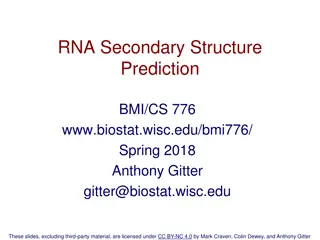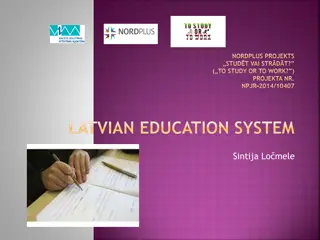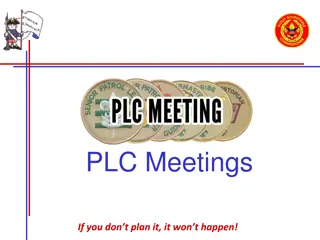Change Leaders for Improving Secondary Mathematics Teacher Preparation
"Explore the transformative journey of MTEP 2.0 in enhancing secondary mathematics teacher preparation programs towards aligning with AMTE Standards and fostering equity. Discover the impact of Networked Improvement Communities (NIC) and the collaborative efforts driving progress in this educational realm."
Download Presentation

Please find below an Image/Link to download the presentation.
The content on the website is provided AS IS for your information and personal use only. It may not be sold, licensed, or shared on other websites without obtaining consent from the author.If you encounter any issues during the download, it is possible that the publisher has removed the file from their server.
You are allowed to download the files provided on this website for personal or commercial use, subject to the condition that they are used lawfully. All files are the property of their respective owners.
The content on the website is provided AS IS for your information and personal use only. It may not be sold, licensed, or shared on other websites without obtaining consent from the author.
E N D
Presentation Transcript
Change Leaders for Improving Secondary Mathematics Teacher Preparation Wendy M. Smith, University of Nebraska-Lincoln Transforming Institutions , June 13, 2023 ational Science Fdn Sponsored in part by NIC-Transform, funded by a grant from the National Science Foundation (DUE-2141730 and 2141737). Any opinions, findings, and conclusions or recommendations expressed in this material are those of the author(s) and do not necessarily reflect the views of the National Science Foundation.
Historical Background The Mathematics Teacher Education Partnership (MTEP) was launched in 2012 by the Association of Public and Land-grant Universities. To improve the quality & quantity of secondary mathematics teachers 40 campuses, organized into Research Action Clusters (RACs) address particular problems of practice engaged hundreds of mathematicians, mathematics teacher educators, K-12 personnel, and other partners Over $9 million in funding from NSF and foundations ~100 presentations and dozens of articles www.mtep.info/bib
Networked Improvement Community (NIC) Design Focused on a well-defined aim Guided by a clear plan of action (driver diagram) Disciplined by the rigor of improvement science (Plan- Do-Study-Act cycles) Networked to accelerate progress Why might NICs be an effective way to tackle the problem of improving secondary mathematics teacher preparation?
Launch of MTEP 2.0 Motivated by a concern that although substantial progress was being made by the RACs, mathematics teacher preparation programs weren t making the necessary transformational change. MTEP 2.0 was launched in Fall 2020: A network of secondary mathematics teacher preparation programs that are working to transform their programs to better align with the MTEP Guiding Principles www.mtep.info/gp which are aligned with the Association of Mathematics Teacher Educators (AMTE; 2017) Standards for Preparing Teachers of Mathematics. 19 teams including 44 programs engaged in local improvement work. 2022 NSF grant to build and study the MTEP 2.0 network.
MTEP 2.0 Overall Aim By 2025, 65 MTEP 2.0 programs, including 11 under-resourced institutions and/or minority-serving institutions, will be: actively engaged in an explicit, localized, prioritized improvement process toward alignment with the AMTE Standards and MTEP Guiding Principles in order to increase the number of well-prepared beginning secondary mathematics teachers, foregrounding issues of equity and access both in the objectives and practices of the programs
MTEP NIC Design Each Local NIC includes > 1 teacher preparation program + > 1 secondary school mathematics teacher educators, mathematicians, + other relevant roles (state depts of ed, SpEd) RACs involve individuals across Local NICs Hubs keep everything connected HUBS In MTEP 2.0, the NIC design is used by: Local NICs and teams Cross-program collaborations - research action clusters [RACs] The MTEP 2.0 network as a whole
MTEP 2.0 Primary Drivers Hubs Change Agents Change agents leading transformation efforts Support (Brian Lawler & Gary Martin) Building overall knowledge about program transformation Knowledge Building Generating, capturing, and promoting knowledge useful to MTEP 2.0 teams Research (Alyson Lischka) Knowledge Sharing Scaling up and nurturing a national network of Program NICs Network Building Outreach (Marilyn Strutchens) Engaging stakeholders across Program NICs in creating, assessing, and responding to policies Responding to Context Building external awareness and support of the MTEP network Admin (Wendy Smith) Public Awareness
Support Hub Goals The Support Hub supports Change Agents in organizing, growing, & sustaining their NICs, providing: Technical support for the operation of the NICs Support for specific improvement efforts being undertaken by NICs Building networking support across NICs Facilitating cross-NIC knowledge sharing
Accomplishments Change Agent development and support (structure, pay, expectations), orientation, and check ins Organize regular interaction webinars (NIC-Casts) and sessions at AMTE Pre-conference to support teams in their improvement efforts and workshops designed to build leadership skills Organize virtual summer conferences since 2020 Assign change coaches to each team, to provide 1-1 support to change agents
Plans Events focused on support, including: Workshops designed to increase networking across Local NICs NIC-Cast Schedule for Fall Continuing check-ins with Change Agents Deepen Change Coach community, strengthen connections Increase engagement with Change Agents in planning future MTEP events
Cross-Hub Organization A Cross-Hub Planning Team consisting of the Hub leaders coordinates work across the Hubs and addresses cross-hub issues. Established a clearer organizational structure to coordinate among the hubs [increase distributed leadership] New website www.mtep.info Strategic planning for MTEP
Ongoing Challenges Helping change agents find time & get credit for their MTEP 2.0 work Sufficient communication without too many meetings & long emails Onboarding new members, sustaining NICs through key personnel turnover Balancing short-term PDSA cycles with longitudinal grant- funded research
Questions? MTEP Co-Directors W. Gary Martin martiwg@auburn.edu Wendy M. Smith wsmith5@unl.edu
